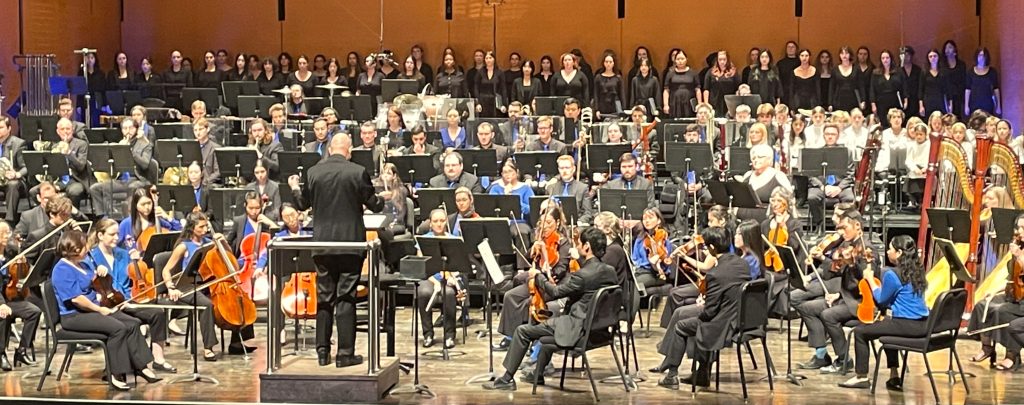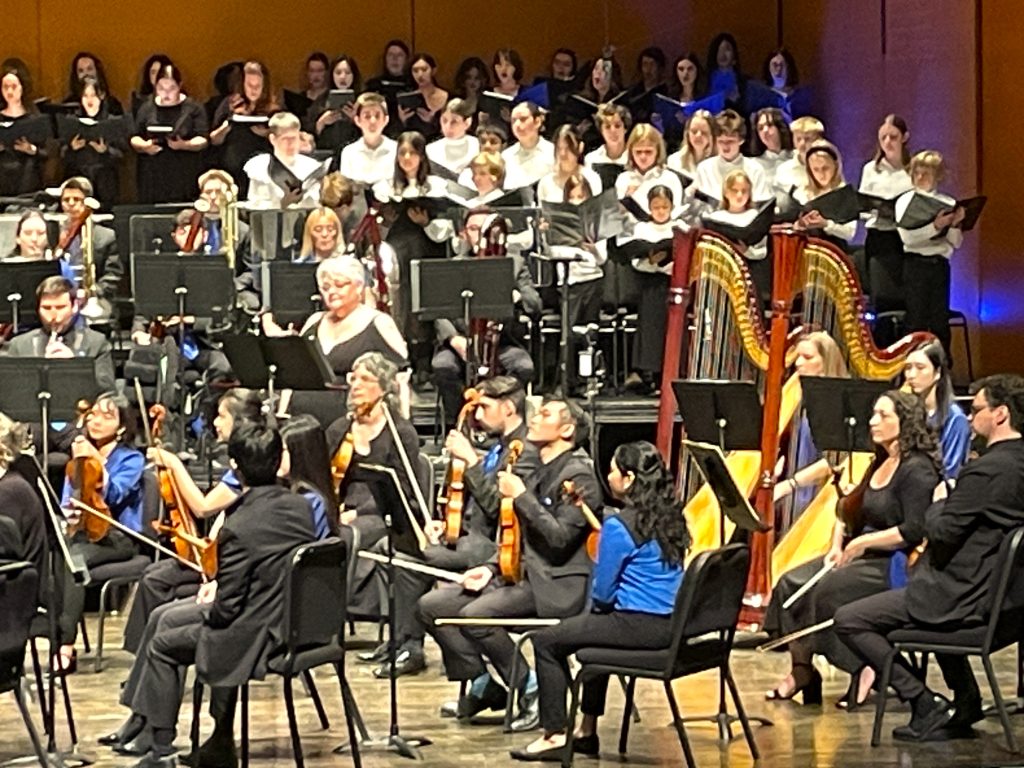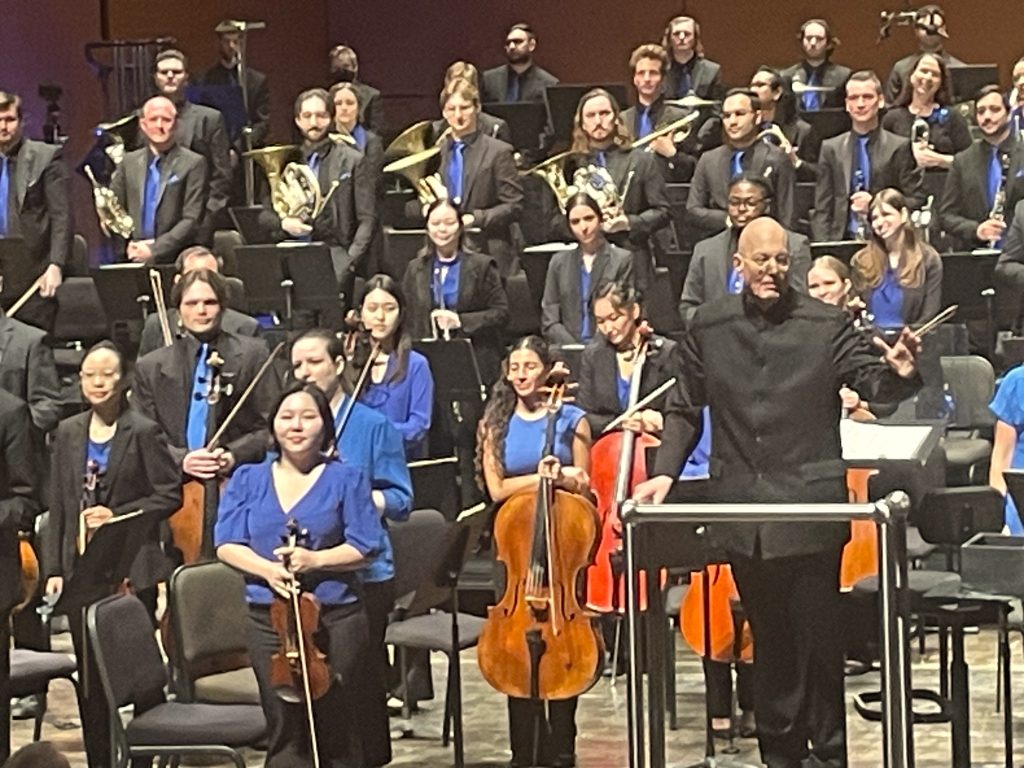
by Kevin T McEneaney
Twenty-six years ago, Bard opened the acoustically marvelous Sosnoff Theater with Gustave Mahler’s Third Symphony (1896, only the first two movements were performed), one of the longest symphonies ever written and rarely performed. The symphony was performed in exactly two hours without intermission under the enthusiastic baton of Dr. Leo Botstein.
Last Saturday and Sunday were the first reprise of this extraordinary symphony about which Mahler stated: “My symphony will be unlike anything the world has ever heard!” He also said it is “nature in its entirety, that awakens from unfathomable silence to ringing and resounding.” And so, it does….
The resounding is primarily from the horns, led by Daniel Itkoitz, trumpets, led by Giulia Rath, and percussion led by Philip Dremus with Pei Hsien on timpani, which sounded as if they emanated from another world. This was the awakening of Pan and a Bacchic procession of life evolving on earth.
Nietzsche read Darwin in the late 1870s. Nietzsche was an atheist; he misunderstood natural selection as restricting the growth of life and did not comprehend how it was a vehicle for plentitude. Influenced by a cosmogenic poem by Sigfried Lipiner (“Genesis”), Mahler agreed with Lipiner, believing in the plentitude of a Divine Creator.
The opening march theme has a dreamlike quality as we enter the world of nature, from evolving plants and flowers to animal life and eventually humankind. There is an enigmatic mysticism in the tiered arrangement of the world animated by the spirit of creative love and moral sensibility. Dr. Botstein noted that Mahler was one of the very few philosophic composers who attempted to describe the world in music.
The “jargon” of this symphony celebrates life as prolific: there is not only classical music, but also primitive music, varied folk music, court music, and even military music. The symphony aspires to articulate a generous evolution toward virtue and love for humankind. The symphony is a rejection of Nietzsche’s pessimistic philosophy.
Late in the opening march, there was a marvelous trombone solo played by Zachery Johnson that appeared to announce the height of Spring flowering. The second movement is a more intimate and delicate minuet as animals begin to populate Earth, ending in a perky duet between a cuckoo and a nightingale. The third movement revels in rustic aplomb. Violins, led by Yaewon Choi, create a more robust depiction of animals evolving in the forest, as brass joins in with a slightly menacing theme.

Nietzsche’s poem “Midnight Song,” sung with magisterial eloquence by Soprano Stephanie Blythe, appears in the fourth movement. (The poem is from Thus Spoke Zarathustra, 1885: the awakening from a dream, the dialectic of night and day, pain and pleasure, decay and eternal life, with a concluding codicil of a mystical eternal return.) Then a chorus of children suddenly arrives in the fifth movement, all dressed in white, which conjures a sense of innocence and wonder in the future of humankind, as the flutes under Olivia Chaikin excelled.
The long climactic Finale is an out-of-this-world thunderstorm of violins, violas, horns, cellos, bass, and trumpets declaring music to be the language of love and mystical transcendence.
This gargantuan production included the Bard College Chamber singers, the Bard College Division Chorus, and the Bard Conservatory Graduate Vocalists, choral director James Bagwell, as well as The Orchestra Now!
